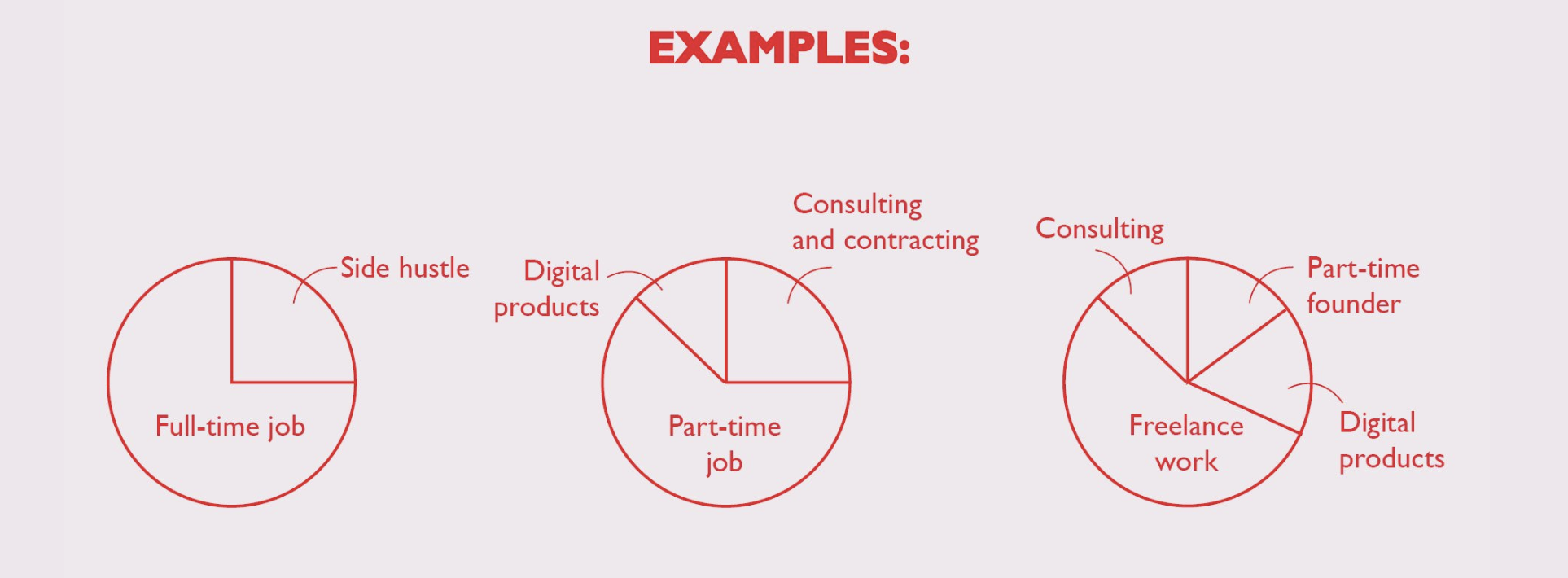Portfolio careers
For me, the conventional 9-5 career path and climbing the corporate ladder never quite fit the bill. I’ve always had a hybrid professional profile, which has been both a blessing and a curse, depending on you perspective (*I’d like to think it’s my biggest blessing). Throughout my career, I've been micro-pivoting with every role, expanding my skillset and exploring my multi-faceted nature. I’ve never fit into the classic, conventional roles—a struggle that bothered me in my 20s. ‘’Why did I always need to synthesize everything?’’ and ‘’Why couldn’t I just specialize in one thing like "normal" people?’’. Yet, the projects and roles I do land are somehow always unique, formative, and a perfect fit for me.
Lately, I’ve been seeing more people talking about finally starting that business, intentionally pivoting careers, strategizing multiple income sources, or taking that dream part-time role. This shift made me recall an article I read a few years ago predicting the rise of portfolio careers and the gig economy—something I feel we’ve already reached now. It explored a future without full-time employment, which might sound scary to specialists used to linear careers. But for generalists and us T-shaped professionals, it’s a breath of fresh air and an exciting, promising daydream where we could have it all—flexibility, diversification, and personal fulfillment!
*Quick digression: Another emerging trend fueling this shift today is the rise of the “soft life”—a relaxed, uncomplicated lifestyle that values peace and ease over stress and hustle culture. As more millennials move away from the hustle culture of “rise and grind,” the main question becomes—at what cost are we maximizing productivity? (*hint: usually at the cost of physical and mental well-being.) The soft life is about being intentional with your time and energy. It encourages conscious decisions that align with your values and bring peace rather than succumbing to external pressures and expectations. Living a soft life doesn’t mean avoiding responsibilities or being frivolous. Instead, it involves recognizing your limits and committing to what you can manage rather than overcommitting and becoming stressed. So as societal values, structures, and norms shift, traditional career models are also changing.
So, what does a portfolio career mean exactly?
A portfolio career involves combining different roles, such as part-time employment, freelancing, consulting, or entrepreneurship, to create a full spectrum of professional activities. This model allows for diversified income sources and the opportunity to pursue various interests and skills.
Key drivers for this trend:
The rise of the gig economy: A significant portion of the workforce now engages in freelance, contract, or part-time work.
Entrepreneurial spirit: More people are starting their own businesses or engaging in side hustles alongside traditional employment.
Digital nomadism: The COVID-19 pandemic accelerated the shift towards remote work, making it easier for individuals to manage multiple roles from anywhere.
Advances in technology and changing attitudes towards traditional employment models will likely fuel this growth.
Personally, I’m excited to contribute to this change in the professional landscape. The era of a ‘job for life’ has long been history. Leveraging gig workers' expertise to augment and complement organizational teams sounds like a win-win scenario to me, especially since the upcoming generation is not steeped in traditional success signifiers or committed to a linear career path. The future of work is here, and it’s more flexible, diversified, and fulfilling than ever before!

